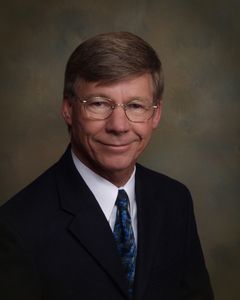It was a quiet knock on my door that morning. So quiet, in fact, that I wondered if I was dreaming. Maybe if I went back to sleep it would go away.
Nope. There it was again: soft but persistent. This time I knew that it really was a knock, and it really was on the front door of my one-room cabin. What I didn’t know was that I’d be hearing that knock for the rest of my life.
I got up, tired and rumpled, and pulled open the door. A young woman I’d never seen before stood there, barefoot and wearing the simple white linen dress of the Campesina (as a woman who works the land is called in rural Paraguay). She was probably no more than 16, but in her eyes was the look of a mother, and something else: distress. In her arms, she held an infant.
“Xe memby o-hasy (my baby’s sick),” she said in her native Guarani.
I didn’t understand a word, but I knew it wasn’t good. I looked at her baby—face gray, eyes open, too sick to cry. What was I supposed to do?
Back then, I wasn’t a doctor. Heck, I hadn’t even taken any premed courses. I was just a liberal-arts major who’d “postponed graduation” from Berkeley “in order to get an education,” as I explained to my incredulous father. Now I was the strange gringo (Peace Corps volunteer) living alongside a dirt road in the middle of the Paraguayan subtropics among a hundred or so peasant families, trying to help them literally hack a living from the jungle.
It was 30 miles to the nearest highway, 300 to the nearest hospital. This young mother had walked most of the night, from her home deeper in the jungle, to get to me. I was her last resort. She was out of options: there were no medicines and no doctors, and all the home remedies and the grandparents’ ministrations obviously hadn’t worked. Why not try the strange gringo?
“Ja ha (let’s go),” I said, and motioned to my Honda 90 (Peace Corps issue) just outside the front door. I didn’t know what else to do, but I couldn’t do nothing. So I helped her onto the back of my motorcycle, where she clung, weeping, one arm clutching my waist and the other clutching her baby, and we headed for the crossroads where my little jungle road intersected the “highway.” This route was just another dirt road, but it at least saw an occasional vehicle. One of these might transport her to the capital city, 300 miles away.
A half-hour later, almost within sight of the highway, the wailing in my ear suddenly changed. I knew what it meant. I stopped and got off. Then I held the young mother in my arms.
Speechlessly, in language that was neither English nor Guarani, I told her I was sorry.
We got back onto my motorcycle, turned around, and headed back. For the next half-hour, I listened to the flood of a mother’s grief—ceaseless, inconsolable, uncomprehending. The grief was hers and that of millions of mothers before her, across countries and cultures and time.
That sound, and her knock on my door that morning, have followed me through all the intervening years. It spoke to me when, after returning home, I changed my major from liberal arts to premed. It guided my choice to train in family medicine when I could have opted for other residencies. It is a gentle reminder when the frustrations of providing care in a seemingly deaf and broken health care system pile up. I sometimes wonder if I shouldn’t have chosen something easier. But she always clears up my doubts.
I know now that she was my first patient, and will remain with me until the day I see my last. Even now, if I close my eyes, I can still hear her.
Reprinted with permission from Sonoma County Medical Association. Dr. Flinders, a clinical professor of family and community medicine at UCSF, chairs the SCMA Editorial Board. Email: flinder@sutterhealth.org
